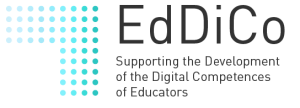The Micro-Credential Users’ Guide
The Micro–Credential Users’ Guide (MC User’s Guide) offers guidelines for implementing short
learning programmes at institutional level and provides links to useful tools, such as the Open
Education Passport and Credit Supplement and other supporting documents. The MC User’s
Guide takes into account recent developments of the European Credit Transfer and
Accumulation System (ECTS) as a tool of the European Higher Education Area (EHEA) for
making studies and courses more transparent and thus helping to enhance the flexibility and
quality of higher education.
The MC User’s Guide will equip Higher Education institutions to adequately adapt to the
changes brought about modularisation of education; to improve the recognition and transfer of
learning between different educational organizations as well as the world of work. This
guidelines apply to any MCs designed, developed and delivered by higher education
institutions (HEI). It is of paramount importance that this document is read together with other
quality assurance documents and policies issued by the National Qualifications Agency and
other related agencies.

